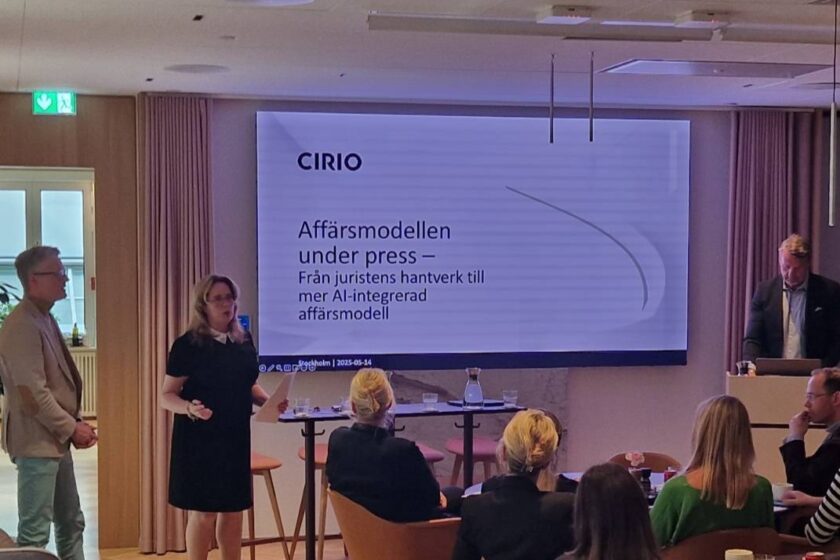Yesterday, the Legal Transformation Network (LTN) hosted a seminar titled “The Business Model Under Pressure – From Legal Craft to a More AI-Integrated Model”, held at Cirio Law Firm in collaboration with several other firms. The seminar was opened with welcoming remarks by Christian Sundell, CIO Cirio.
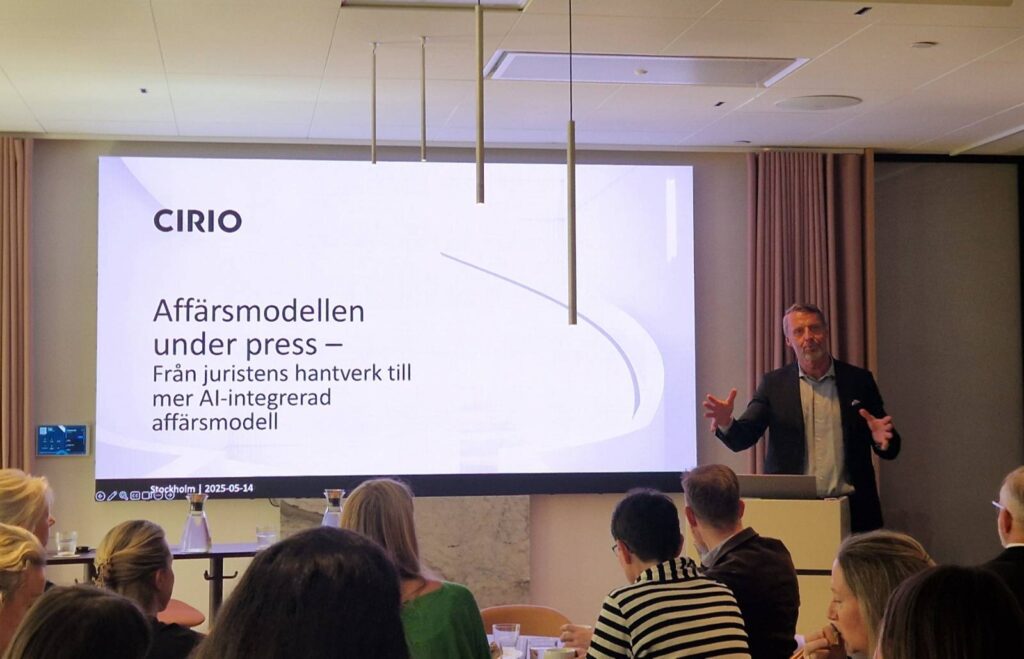
Christian Sundell
AI tools are currently being tested by law firms to support legal work, including legal research and contract review. Given this context, it was no surprise that the seminar drew a full audience.
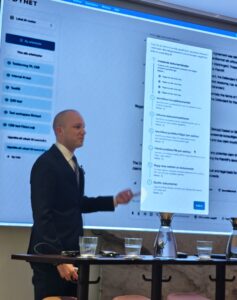
Richard Sahlberg
Richard Sahlberg, Partner at Foyen and founder of Foytech, opened the session by sharing their approach to AI implementation. Their goal is to maximise the use of AI tools to increase efficiency, and they are now moving toward more agent-based solutions that follow predefined processes.
The discussion then turned to the implications of AI on the traditional billable hour model—central not only to client billing but also to performance evaluation within firms. As some junior associate tasks could potentially be replaced by AI, this raises questions about how to adapt the business model accordingly.
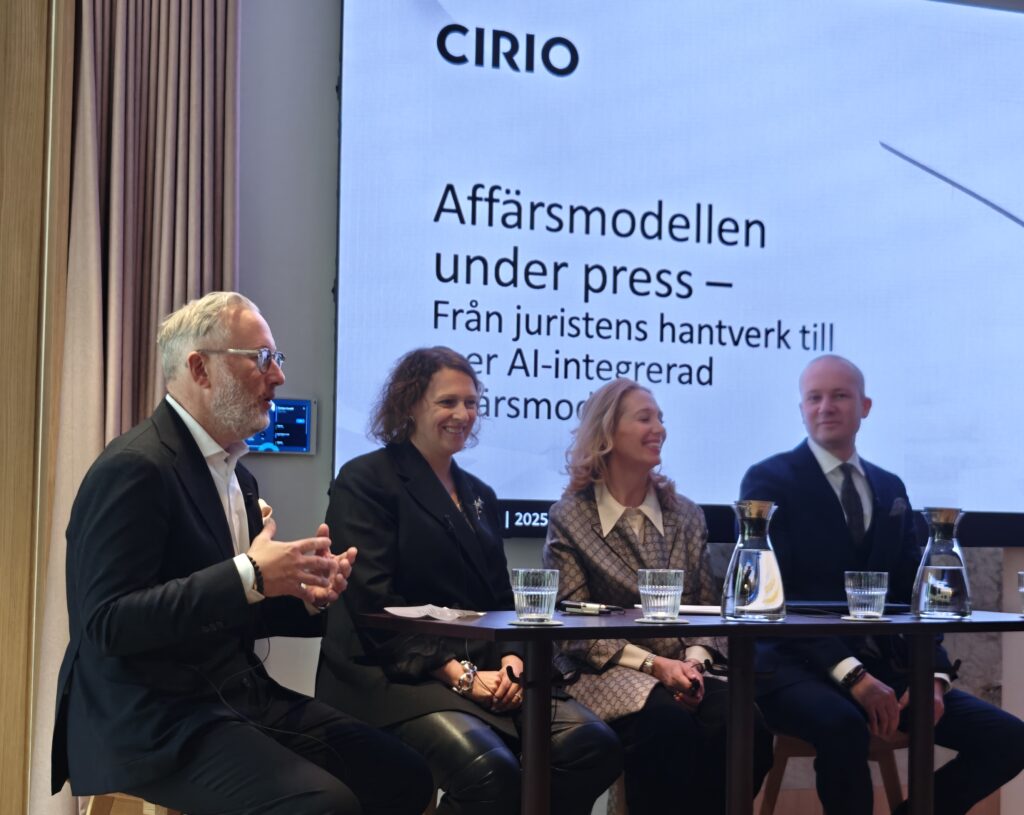
Johan Hubner, Emma Dansbo, Mia Edwall Insulander and Richard Sahlberg
A panel discussion followed, with Emma Dansbo, Managing Partner Cirio, Johan Huber, Partner Delphi, Mia Edwall Insulander, Secretary General of the Swedish Bar Association and Richard Sahlberg, Partner Foyen, moderated by Frida Keyling, Managing Director Glimstedt. One key issue raised was how firms should charge for legal work if AI significantly reduces the time required to complete it. Mia noted that pricing can already be adjusted to reflect a broader assessment of what constitutes a “reasonable” fee.
Johan highlighted the need to better define the value law firms deliver. If clients can use AI themselves for certain tasks, lawyers may need to emphasise that what they provide is ultimately a form of assurance—ensuring the result is correct and reliable.
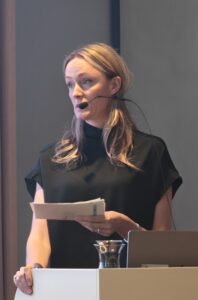
Frida Keyling
Richard pointed out that their AI tools have already freed up time internally, allowing for more focus on quality control. Emma noted that for a firm of Cirio’s size, agility and external adoption of technology is key. She also stressed the importance of culture, leadership, and skills development. To support this, she has set up an AI council that includes both sceptics and enthusiasts to help guide implementation in a balanced and inclusive way.
The group also discussed client expectations—many now expect their lawyers to work efficiently with AI, but some remain hesitant. A key question was whether firms must disclose their use of AI. The prevailing view was that while transparency is important, responsibility ultimately lies with the lawyer delivering the final advice.
Another issue raised was how to assess return on investment for AI and legal tech more broadly. If firms invest in reducing the hours spent on cases, this must be reflected in how they structure their pricing.
Mia concluded with an ethical perspective on billing: “As long as it is reasonable, it is not unethical.”
This seminar marked the beginning of an ongoing conversation. Follow-up sessions are planned after the summer, with more details to be shared in future newsletters.
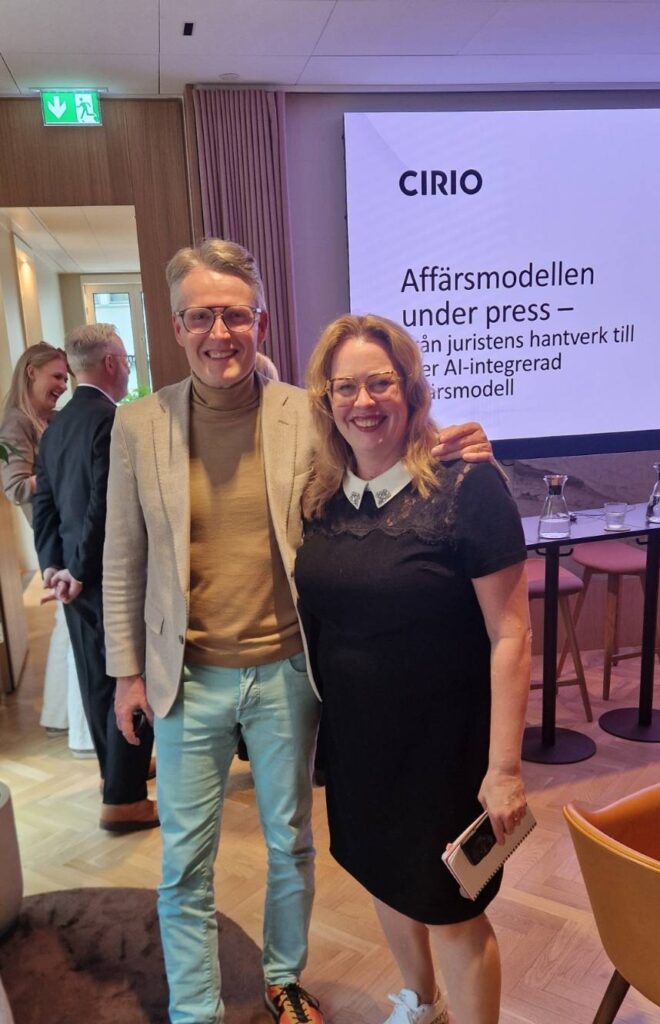
Heikki Ilvessalo and Helena Hallgarn, two of the founders of LTN

